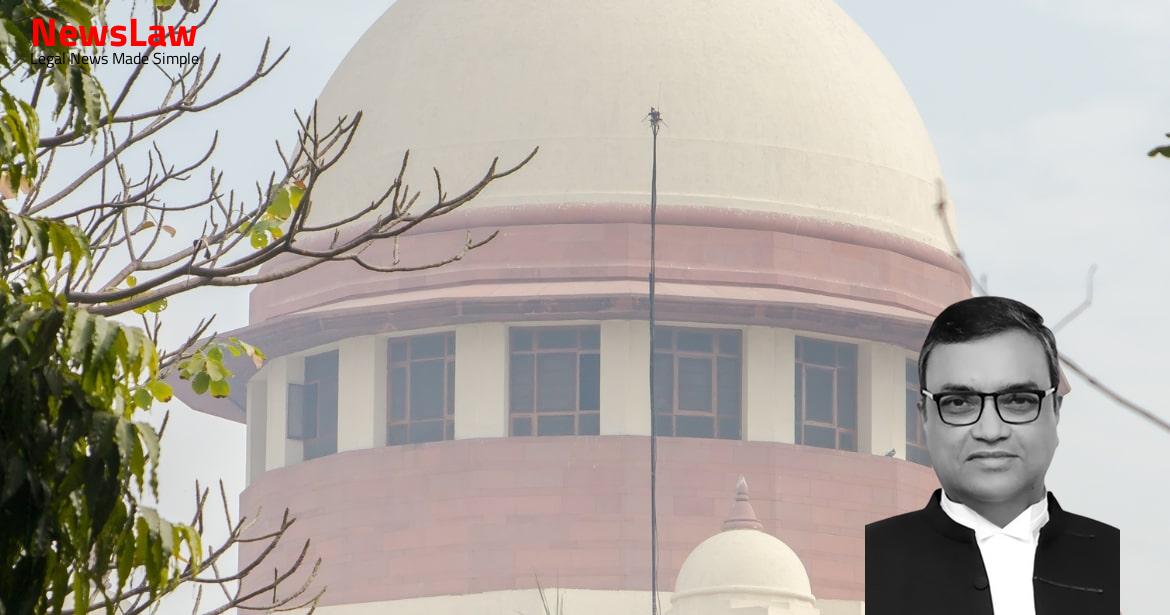In a significant development, the Supreme Court of India has pronounced a groundbreaking judgment in the case concerning compassionate appointment policy implementation. The ruling, which impacts the lives of many individuals including the parties involved, sets a precedent for similar cases in the future. Stay updated on this crucial legal decision. #SupremeCourt #LegalJudgment #CompassionateAppointment
Facts
- Respondent sought compassionate appointment on account of his father’s death on 17.05.2004.
- Respondent did not receive compassionate appointment, and appellants claimed policy implementation was on hold for a new policy.
- Respondent approached a judicial forum for the first time in 2011 with a Writ Petition which was disposed of in 2012 to consider his application as per policy.
- Second Writ Petition filed by respondent led to being advised to pursue a civil suit remedy.
- New policy came into effect on 23.11.2004, offering solatium of Rs. 3 lakhs under specific terms.
- Respondent was offered the alternative benefit of a temporary post, which was declined.
- Civil suit filed by respondent initially dismissed, but appeal allowed eventually.
- In the current impugned order, the second appeal has been dismissed.
Also Read: Supreme Court Ruling on Inclusion of Allowances in Deceased’s Income Calculation
Arguments
- Learned counsel for the appellants referred to the judgment in State Bank of India v. Raj Kumar
- Highlighted paragraphs 8 and 13 of the said judgment
- Requested attention to specific points mentioned in those paragraphs
Also Read: Judicial Review of Delimitation Orders: Upholding Constitutional Values
Analysis
- Compassionate appointments are not an inherent right and should be in accordance with existing policy.
- The objective is to alleviate the family’s condition at the relevant time, not deviate from merit-based rules.
- The appellants are challenging these orders for compassionate appointments.
- The earlier policy was abolished and a new policy came into force
- The application was considered under the new policy and options were offered to the respondent
- The respondent failed to avail of the options available under the new policy
- The new policy clause states that the offer of solatium could be the only remedy available at this stage
- The objective of providing immediate amelioration to the family is now extinguished
- There were multiple impediments in the way of the respondent
- One of the impediments was the delay in approaching the Courts for redressal after a period of 7 years, despite making representations
Also Read: Quashing of Complaint Case No. 85479 of 2022 in the Case of Industrial Dispute Violation
Decision
- The solatium has been revised to Rs. 5 lakhs as per the current policy.
- Initially, a solatium of Rs. 3 lakhs was offered on 19 September, 2004.
- The appeal has been allowed as per the signed reportable order, with parties bearing their own costs.
- Pending application(s) shall stand disposed of.
- In the interest of justice, it is directed that the sum of Rs. 5 lakhs be paid to the respondent within two months from today.
Case Title: PUNJAB STATE POWER CORPORATION LIMITED Vs. NIRVAL SINGH
Case Number: C.A. No.-004660-004660 / 2019



